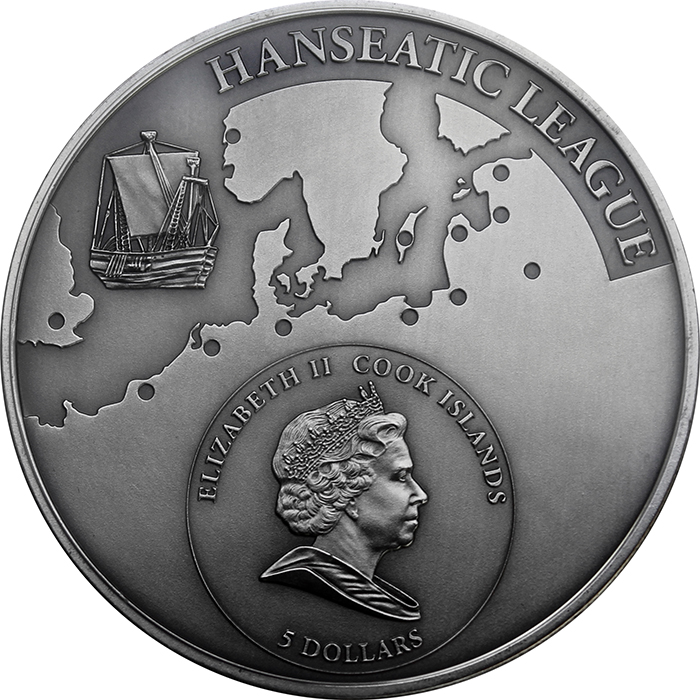Silver Coin Kaliningrad 2010 Standard Cook Islands
The product cannot be ordered now.
NOT IN STOCK
Detailed description
RAZITKO_POSTOVNE_ZDARMA_NENI
Hanseatic League Sea Trading Route series
This exclusive silver (antique) coin issued by the Cook Islands in 2010 from the Hanseatic League Sea Trading Route series features the Russian port city of Kaliningrad and a bronze statue of a Hanseatic League member on the reverse. The inscriptions "THE TEUTONIC CITY", "KALININGRAD KÖNIGSBERG" and the year of issue complete the obverse. The obverse shows the Hanseatic League trade route and a portrait of Queen Elizabeth II..
The coin comes in a blue gift box with grey and silver trim along with a numbered certificate of authenticity in a limited edition of only 1000 pieces for the whole world!

Kaliningrad

Kaliningrad (originally German Königsberg, Czech Královec, Polish Królewiec, Latin Regiomontium, Lithuanian Karaliaučius) is the capital of the Kaliningrad Oblast, an exclave of the Russian Federation. It lies at the mouth of the Pregola River into the Baltic Sea. In 2007 it had 422,300 inhabitants. It used to be the capital of East Prussia.
The settlement of Pregnora on the site of the later city was founded around 300 BC, but it was destroyed during the conquest of Prussia by the Crusaders. The Crusaders founded the town in 1255 in honour of the Bohemian King Přemysl Otakar II, who led the Crusader armies during one of their expeditions against the pagan Prussians. The Crusaders built a castle here, which in 1256 they named Royal Mountain in Sambia (castrum de Coningsberg in Sambia), in Latin Mons Regius (later Regiomontium).
Around 1290, the town was granted city rights. It developed as a port and a member of the Hanseatic League. Around 1300, the settlement Löbenicht was founded on the south bank of the Pregola River and in 1327 the settlement Kneiphof was founded on the island of Pergola (all three parts were merged in 1724). In 1312 the castle became the seat of the Grand Master of the Teutonic Knights and shortly afterwards the construction of a cathedral dedicated to St. In 1345, the town suffered a devastating fire. In 1701 the town fell to Prussia and in the same year Frederick I was crowned King of Prussia. In the 18th century other suburbs were added to the town. During the Seven Years' War, the town briefly fell to Russia. In 1871 the town became part of the German Empire.
Product Specifications
Application form
Thanks to our position on the market, we can try to provide you with a product that is currently sold out or unavailable for a longer period of time. Simply fill in the application form and we will contact you as soon as we are able to secure the product.
Filling in the application form is not binding for you.
Buyback contact form
We will be happy to buy investment metals purchased from us or from our competitors. Our customers always get the highest price offered at any given time. Fill out the form below and we will contact you. Thank you for your trust.




